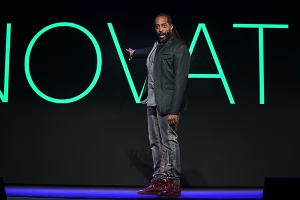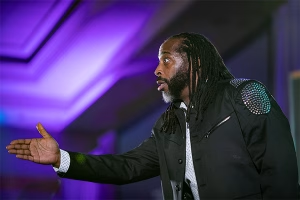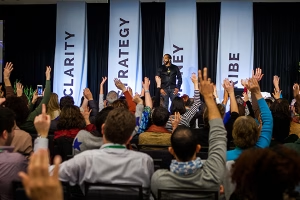Leadership is no longer just about strategy—it’s about connection. In a world that demands authenticity, leaders must find ways to humanize their approach and inspire action. Poetry, particularly the spoken word style perfected by Sekou Andrews, provides a unique and powerful way to achieve this.
Poetry humanizes leadership by fostering vulnerability. Leaders who share their stories, struggles, and values through poetic language build trust and relatability. Sekou’s performances show how authenticity creates emotional connections that transcend hierarchies and resonate deeply with teams.
Another strength of poetry is its ability to clarify purpose. Through vivid imagery and metaphor, leaders can communicate their vision in ways that inspire and engage. Sekou’s Poetic Voice transforms complex goals into compelling narratives, aligning teams with shared missions and motivating them to take action.
Poetry also creates a sense of belonging. Its universal themes and emotional resonance bring people together, fostering empathy and collaboration. Leaders who use poetry to connect their teams build stronger relationships and create cultures of inclusion and trust.
Inspiration is another hallmark of poetic leadership. Poetry doesn’t just inform—it moves people. By weaving rhythm and emotion into their communication, leaders can energize their teams and inspire them to embrace challenges with confidence and creativity.
Finally, poetry makes leadership memorable. While traditional speeches may fade, poetic messages linger, embedding themselves in the hearts and minds of audiences. Leaders who use poetry to communicate leave a lasting legacy, shaping how their teams think, feel, and act for years to come.
For leaders looking to inspire action and foster connection, poetry isn’t just an art—it’s a strategy. By embracing this powerful tool, they can humanize their leadership and lead with authenticity and purpose.


